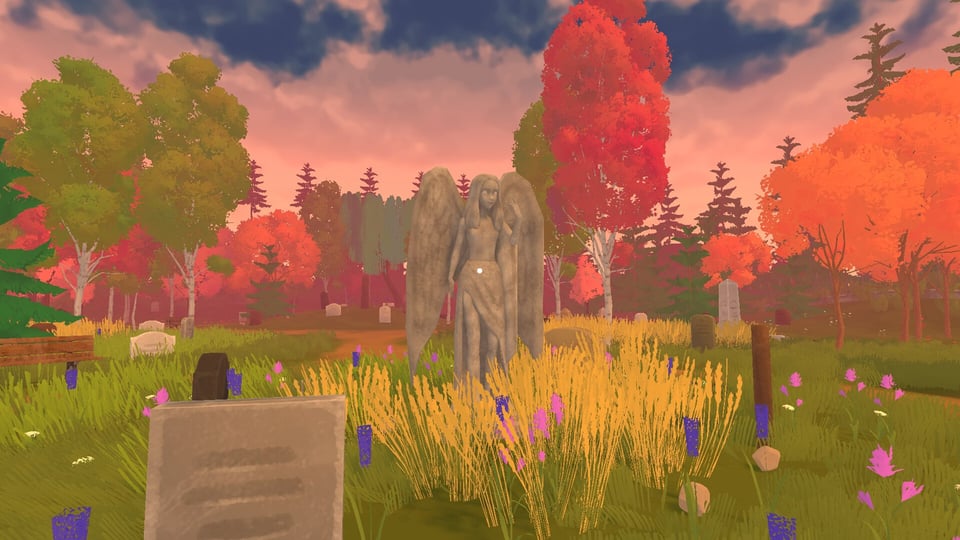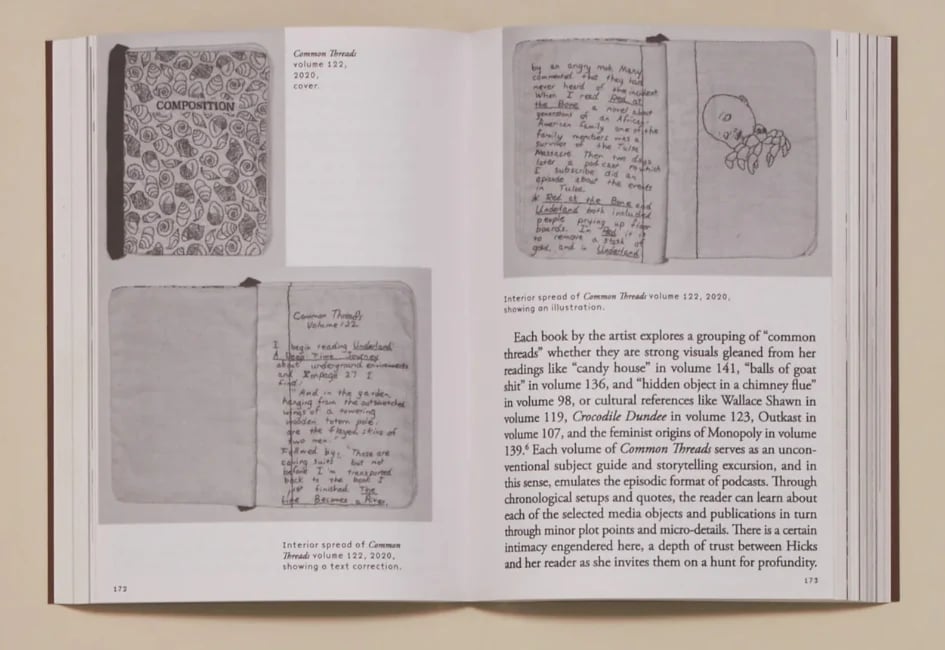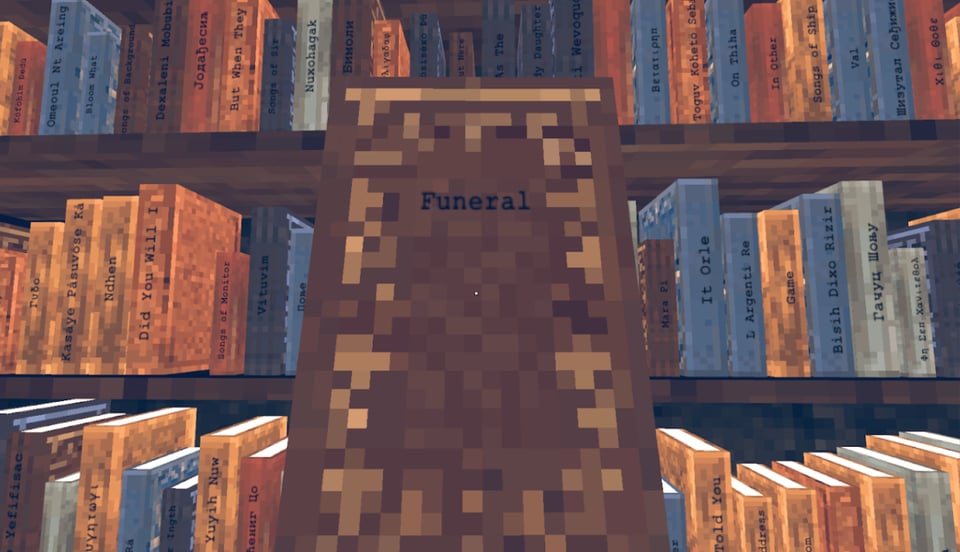Expedition 12
The Bathysphere
Hello and welcome aboard the 12th expedition of the Bathysphere! This week, Floss is looking at fake books, Keith is wandering a digital cemetery and Christian is reading the latest Jennifer Higgie masterwork. As ever, the essay is only available to paying subscribers, who can also check out our online archive of previous expeditions. Now, please step inside (mind your head) and enjoy the trip.
The Bathysphere crew
Christian Donlan
Florence Smith Nicholls
Keith Stuart
Contact us at bathyspherecrew@gmail.com
Delightful games

As someone who enjoys wandering around graveyards (shout out to Bath Abbey Cemetery and St Andrew’s Church, Mells), I was always going to play Seasonala Cemetery, the latest project from Gabby DaRienzo (A Mortician’s Tale). It’s a peaceful sim that allows you to read grave stones, listen to bird song and enjoy the flora and fauna of a rustic cemetery; the game takes the time and date from your PC when you play and the visuals change accordingly. A lovely shot of relaxation, especially for goths and consumptive romantic poets. KS
On the theme of fake books in video games, here’s a pretty exceptional example of the exact opposite. The Shaman, the Outsider and the Diet of Worms is an epistolary fantasy game as told through a wiki about the eponymous academic book. The thing is, developer Stanley W. Baxton has also actually written the text the wiki is based on as a 90 page manuscript. I love the crunchiness of the PDF - it looks like a scanned copy of a textbook that your university lecturer would share. FSN
The theme of this week is clearly books, and so I’m reminded of a fascinating game made by one of my favourite development teams, Santa Ragione. The Dustjacket’s a game about the feel of books - how it feels to turn them over in your hands, flip through them, and live around stacks of them. All that and a lovely score that puts me in mind of Twin Peaks. Do check it out. CD
Interesting things

Again, on the topic of books: I’m completely smitten with Janelle Rebel’s Bibliographic Performances & Surrogate Readings, which delves into the history and imaginative potential of subject bibliographies. In a way, maybe Bathysphere is a kind of subject bibliography, a list of recommendations on a theme. FSN
I love this Polygon article from Patricia Hernandez about tracking down the rare game TRIPITAKA. Games preservation is a vitally important area rife with frustrations – I know as I have spent five years trying to track down Paul Stephenson, the creator of 1982 Rogue-like platformer, Aztec. I’ve got as far as arranging an interview with the game’s publisher, but this didn’t pan out. There are rumours on various ancient gaming message boards that he became a lecturer, but nothing concrete. He has no social media presence, no digital footprint, and yet there must be someone out there who knows or knew him. It’s a lesson that no matter how big the games industry becomes, some of its formative creators (and creations) may well remain lost or unknown forever. KS
If you happen to be in Toronto, the city’s Games Week is still going on, with some interesting events coming up, including a Pico-8 jam with Adam Saltsman and a talk by documentary filmmaker Min Sook Lee exploring video games as autoethnographic and autofictive practice. KS
At the moment I’m reading The Other Side, by Jennifer Higgie. The subtitle is “A journey into women, art and the spirit world,” and Higgie’s examining the neglected history of women artists whose work tried to communicate with and learn from other dimensions. It’s a wonderful mixture of memoir and analysis, and the kind of book you can only write if you’ve spent your life immersed in art and are driven to bring wrongly-ignored artists back into the light. Revelations on every page. CD
Essay: Real stories of fake books

Ever since the recent online kerfuffle over the non-existent AI generated titles published in a “Summer Reading List” by the Chicago Sun-Times, I can’t stop thinking about fake books, and how the “hallucinated” kind are absolutely the least interesting. After all, fake books have been carefully, and deliberately, designed as visual gags or worldbuilding props in film, TV and video games. They’re also not new, with a renowned example of a list of fake books in a novel dating back to 1532.